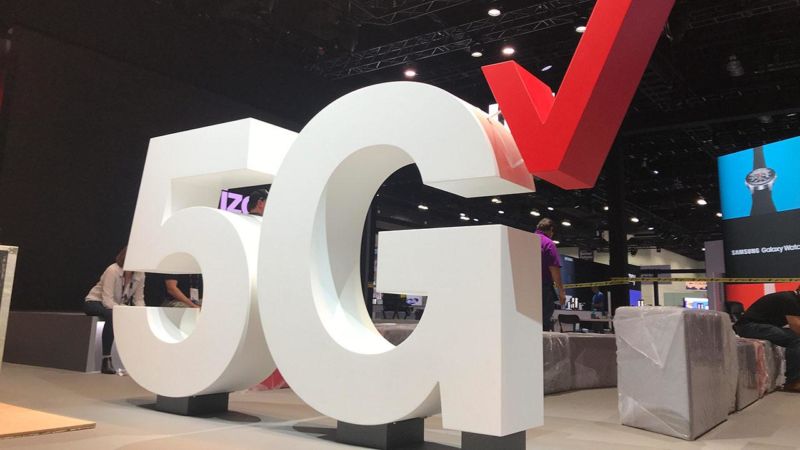
Verizon on Friday announced that its 5G network is now available in three NBA arenas and is coming to seven more by the end of the 2019-2020 basketball season.
But there’s a big caveat, just like there is with Verizon’s 5G coverage in NFL stadiums: Verizon 5G only covers some of the seating areas.
Verizon’s 5G-in-arenas announcement on Friday did not mention this significant limit. But when contacted by Ars, Verizon said the 5G network doesn’t cover the whole arena for any of these NBA facilities. “Just certain seating areas” in the NBA arenas have access to 5G, a Verizon spokesperson told us.
This isn’t surprising, given that Verizon’s early 5G rollout relies heavily on millimeter-wave signals that don’t travel far and are easily blocked by walls and other obstacles. But while NFL stadiums typically seat between 60,000 and 80,000 people, the seating capacity in NBA arenas is generally 17,000 to 21,000. Despite the big difference in size, Verizon’s 5G network isn’t yet capable of covering all the seating areas in any one of these facilities.
Phoenix, San Francisco, and Denver
Verizon said its 5G is newly available in Talking Stick Resort Arena in Phoenix (home of the NBA’s Phoenix Suns), Chase Center in San Francisco (home of the NBA’s Golden State Warriors), and the Pepsi Center in Denver (home of the NBA’s Denver Nuggets and NHL’s Colorado Avalanche). Verizon’s announcement didn’t say what data speeds attendees should expect, but it promised that 5G will “enhance the game-day experience for sports fans [and] provide greater bandwidth for concert-goers, visitors, or businesses working inside the venue.”
Verizon also said 5G coverage is “coming soon to Madison Square Garden” in New York City, home of the NBA’s New York Knicks and NHL’s New York Rangers. Overall, Verizon said its “5G Ultra Wideband mobility service will be live in 10 arenas by the end of the 2019-2020 season,” but it didn’t name the rest of them. There are 29 NBA arenas and 32 NHL arenas, with some overlap between those lists.
It’s not clear when or if Verizon 5G will be able to cover all the seating areas in any single major sports facility. Verizon boasts that its 5G is available in 13 NFL stadiums and is coming to more this season, but it hasn’t said if it expects to achieve full-stadium coverage. 5G can work on all frequencies, so at the very least it should eventually be rolled out on the same frequencies used for 4G. But Verizon says that 5G on lower frequencies will be more like “good 4G.”
Just because Verizon adds 5G to a stadium or arena doesn’t mean 5G is available anywhere else in the city where the facility is. “In some cities the stadium will be the only place with Verizon 5G Ultra Wideband service,” Verizon said when it made its NFL announcement. Verizon does offer 5G in non-arena parts of Denver and Phoenix but not yet in San Francisco.
Verizon made another 5G announcement today, saying that its 5G home Internet service is coming to Chicago on October 24, the fifth city to get it. The service will be available only “in parts of the Windy City,” Verizon said.
For mobile service, Verizon charges $10 extra per month for 5G service but includes it for free “for a limited time” in certain unlimited plans. Verizon charges $70 a month for 5G home Internet service, or $50 if you’re also a Verizon mobile customer. Verizon has said it plans to bring 5G home Internet to every market where it deploys 5G mobile service. Not including stadium deployments, Verizon 5G mobile is available so far in 10 cities and is slated to hit 20 more cities by the end of 2019.